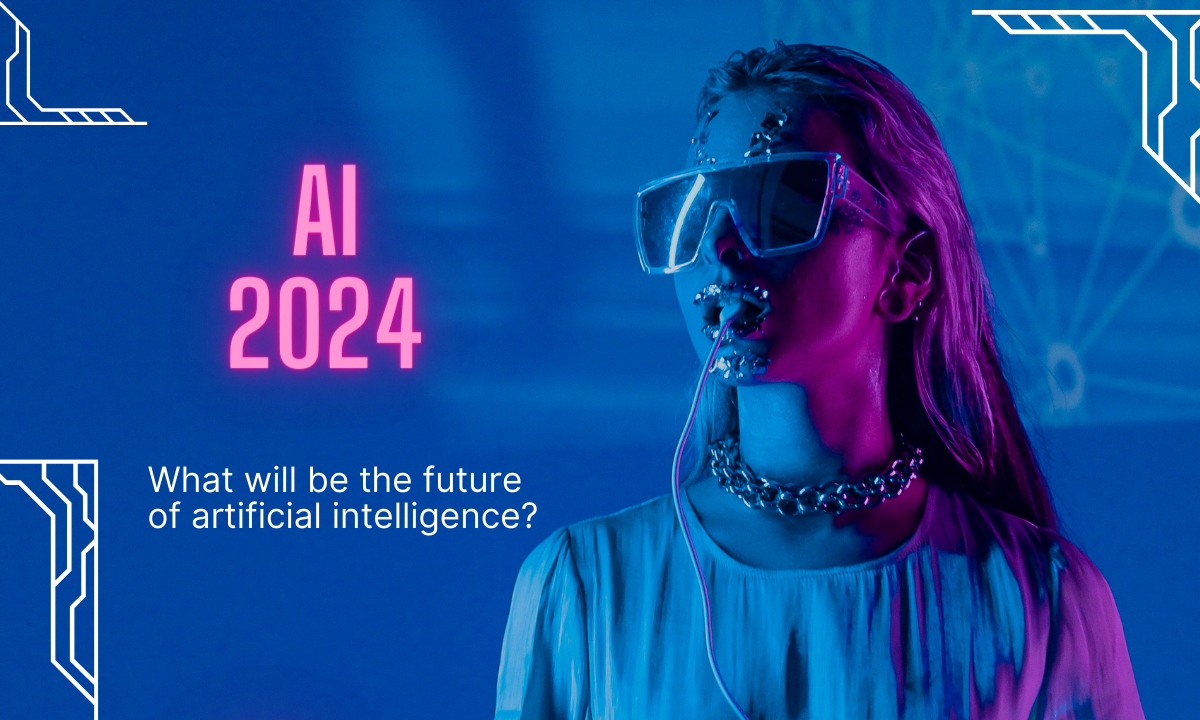
Artificial Intelligence (AI) is undeniably one of the most transformative technologies of our time, promising groundbreaking advancements across numerous fields. However, as we stand on the cusp of 2024, it is crucial to recognize and address the ethical challenges and potential risks associated with these advancements. In this comprehensive exploration, we delve deeper into the 10 disturbing AI breakthroughs anticipated in 2024, examining their implications, complexities, and the imperative for responsible development.
- Deepfake Technology Escalation: The evolution of deepfake technology has reached alarming levels of realism, raising concerns about its potential misuse. In 2024, we anticipate even more sophisticated deepfake creations, amplifying the threat to truth, authenticity, and trust in media and information sources. The proliferation of highly convincing deepfakes poses significant challenges for combating disinformation, protecting individual reputations, and upholding the integrity of democratic processes.
- AI-Powered Cyberattacks: The fusion of AI with cyber warfare capabilities heralds a new era of cyber threats, characterized by adaptive, autonomous attacks capable of evading traditional security measures. As cybercriminals leverage AI to orchestrate more sophisticated and targeted attacks, organizations and governments face mounting challenges in safeguarding critical infrastructure, sensitive data, and digital ecosystems. The arms race between cyber defenders and attackers intensifies, underscoring the urgent need for robust cybersecurity strategies and collaborative efforts to mitigate emerging threats.
- Algorithmic Bias Amplification: Despite efforts to address bias in AI algorithms, systemic inequities persist, often perpetuated and amplified by AI systems themselves. In 2024, we anticipate instances where biased algorithms exacerbate disparities in areas such as healthcare, criminal justice, and financial services, reinforcing existing social injustices and undermining efforts towards fairness and equality. The imperative to mitigate algorithmic bias requires ongoing research, transparency, and accountability in AI development, along with proactive measures to ensure equitable outcomes for all individuals.
- Autonomous Weapon Systems: The prospect of autonomous weapon systems equipped with AI capabilities raises profound ethical dilemmas surrounding the delegation of lethal decision-making to machines. In 2024, advancements in this domain could bring us closer to the deployment of fully autonomous weapons on the battlefield, posing existential risks to civilian populations and escalating the potential for uncontrolled warfare. The ethical imperative to prevent the proliferation of autonomous weapons necessitates international dialogue, ethical frameworks, and regulatory mechanisms to govern their development and use.
- AI-Powered Surveillance: The widespread adoption of AI-driven surveillance technologies in 2024 raises concerns about privacy infringement, mass surveillance, and the erosion of civil liberties. From facial recognition systems to predictive analytics, these technologies enable unprecedented levels of monitoring and control, posing significant risks to individual autonomy and democratic values. The ethical imperative to balance security needs with privacy rights underscores the importance of robust legal frameworks, transparency, and public oversight in regulating surveillance practices.
- AI-Generated Synthetic Biology: The convergence of AI and synthetic biology holds immense promise for scientific innovation, yet also presents ethical challenges related to biosecurity, environmental impact, and unintended consequences. In 2024, AI algorithms may facilitate the design and creation of novel biological organisms with specific traits or functions, raising concerns about the potential release of harmful pathogens or ecological disruptions. The ethical imperative to ensure responsible stewardship of AI-generated synthetic biology demands rigorous risk assessment, bioethics guidelines, and international collaboration to mitigate potential hazards and safeguard global health and ecosystems.
- AI-Driven Job Displacement: The accelerating automation of tasks and jobs by AI and robotics poses significant socio-economic challenges, including widespread job displacement, income inequality, and structural unemployment. In 2024, industries across various sectors may experience heightened disruption as AI technologies reshape labor markets and redefine the nature of work. The ethical imperative to address the human impacts of AI-driven job displacement necessitates proactive measures, including investment in education, reskilling programs, and social safety nets to support affected individuals and communities.This article offers free shipping on qualified Face mask products, or buy online and pick up in store today at Medical Department.
- Emotion Recognition Surveillance: The deployment of AI systems for emotion recognition surveillance raises profound ethical concerns regarding personal privacy, freedom of expression, and psychological autonomy. In 2024, the widespread adoption of these technologies may enable intrusive monitoring and manipulation of individuals’ emotional states, with implications for social control, consumer behavior, and mental well-being. The ethical imperative to protect individuals from undue surveillance and psychological manipulation requires robust privacy regulations, ethical guidelines, and public awareness campaigns to uphold fundamental rights and dignity.
- AI-Enhanced Social Engineering: The intersection of AI algorithms with social engineering techniques poses significant risks of exploitation, manipulation, and psychological harm. In 2024, we anticipate the refinement of AI-enhanced social engineering strategies aimed at influencing human behavior, opinions, and decision-making on a mass scale. From political propaganda to targeted advertising, these techniques raise concerns about informed consent, democratic integrity, and individual autonomy. The ethical imperative to safeguard against AI-driven social engineering demands critical media literacy, regulatory safeguards, and ethical guidelines to protect vulnerable populations and uphold democratic principles.
- Existential Risks from Superintelligent AI: While still theoretical, the prospect of superintelligent AI—machines surpassing human intelligence—poses existential risks to humanity’s future. In 2024, advancements in AI research may bring us closer to the realization of superintelligent AI, prompting urgent discussions about control mechanisms, ethical safeguards, and the long-term implications for human civilization. The ethical imperative to mitigate existential risks from superintelligent AI requires interdisciplinary collaboration, international cooperation, and proactive efforts to ensure alignment with human values and goals.
In conclusion, as we anticipate the emergence of these disturbing AI breakthroughs in 2024, it is imperative that we confront the ethical complexities and risks inherent in AI development. Responsible AI stewardship demands a proactive, multidisciplinary approach that prioritizes ethical considerations, human well-being, and societal values. By fostering dialogue, collaboration, and informed decision-making, we can navigate the ethical landscape of AI advancements and harness their transformative potential for the benefit of humanity and the planet.






